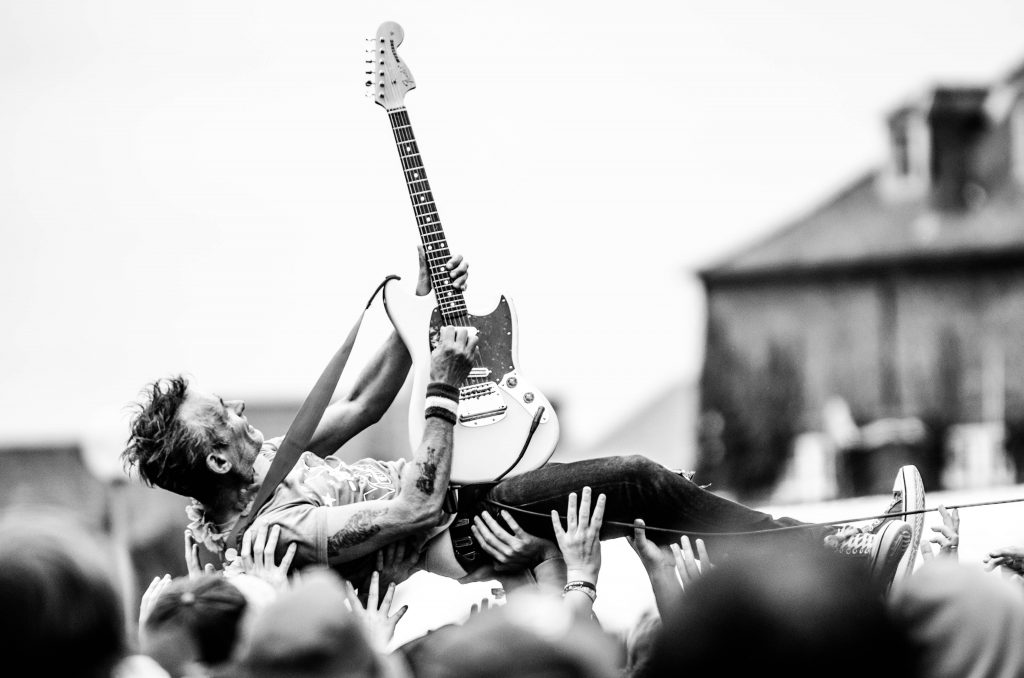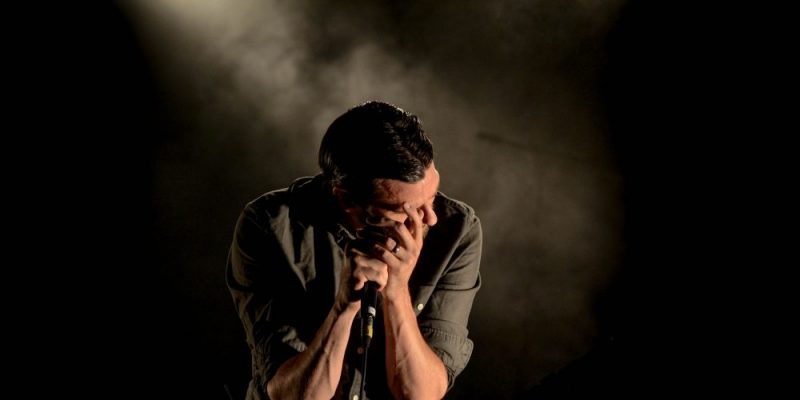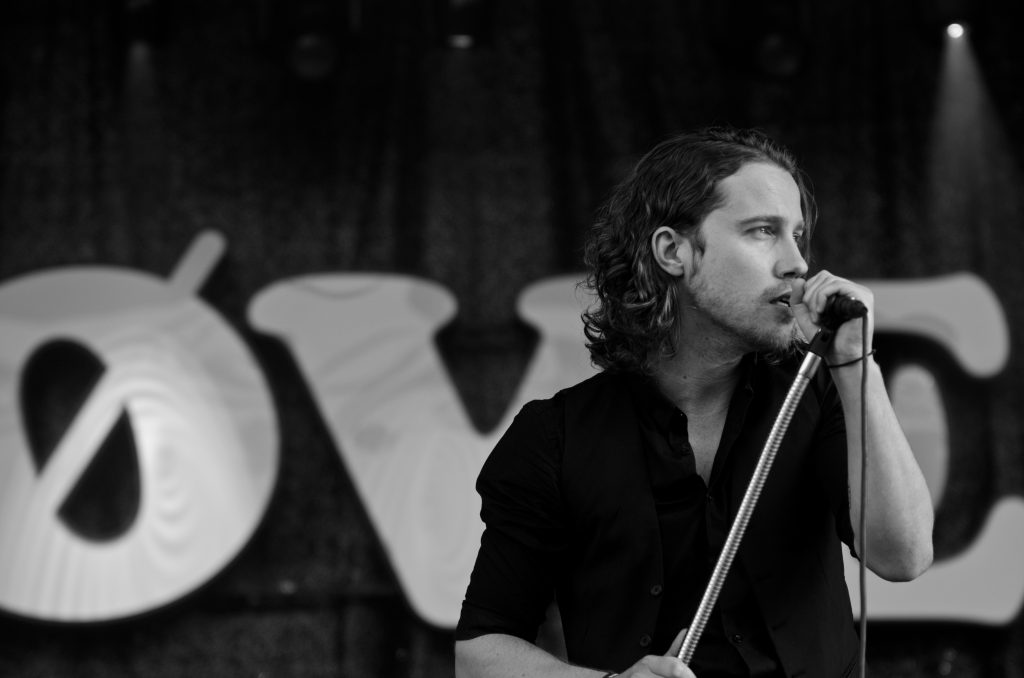In much of every day life, there’s often a clear distinction between those who were born to perform and those who dread the very thought of it. I once, quite recently in fact, read a comment on an interview link that a popular musician had shared, which read – “If you have no interest in performing, you have no business being a musician.” My initial response, and indeed, the lasting thought I’ve taken away from this, was bollocks.
I won’t get too hung up on it in terms of a debate right now, but my view on life has always been of a very specific principle – if you enjoy doing something, you should keep doing it. If you’re not harming anyone, if it makes you a happier person, thereby making you much more of a pleasure to be around, thereby making those around you happier – do it, and do it again, and spend your life doing it. If making music brings you clarity and/or joy, if writing songs helps you understand the world, if recording and producing an original piece of music leaves you feeling proud and satisfied and accomplished, the performance side of music is simply irrelevant.
However, random comments aside, there are many musicians who fear or even loathe performing, and yet they have this inescapable desire to overcome that fear and to master the ability and to evolve into someone much more confident and capable. Whether it’s possible or not – and I say that with the idea in mind that perhaps we never really overcome fear, we simply learn how to live in harmony with it – this is what I want to talk about here. If you’re a musician, a songwriter, or in fact any one with a creative drive or a knowledgeable background who desires yet struggles to express their skill and their wisdom publicly, this article is for you.
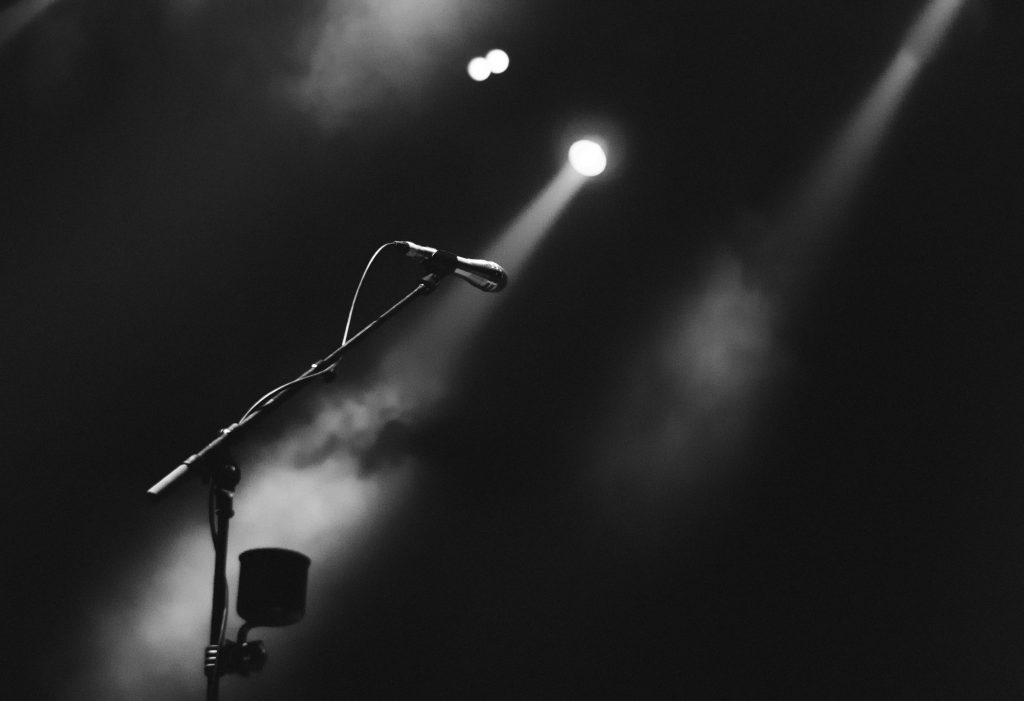
I’m someone who will always write songs, always record new music, always be involved in music in as many ways as possible. Even so, I’ve never been comfortable on stage. Perhaps I have no business being a musician, but I don’t really care – I love making music. Business and creativity can either be best friends or mortal enemies.
To be fair to the person who commented, if you build up a following for your music, but then refuse to even try to perform for them, after they’ve supported you for so long, it’s possibly quite unfair and perhaps even disrespectful. You don’t owe them anything, sure, but it’s nice to try to live in a thank you led world where gratitude and appreciation dictate our actions.
In that context, the comment has more of a foot to stand on. Perhaps the person commenting had bought four albums from his favourite band and waited years for them to tour, but they never did. That could leave you a little raw. Having said that though – there’s no contract attached when we buy music that states I will only buy this on the agreed terms that the artist or band in question performs within 50 miles of my house at some point in the next four years. That’s not what music is about. And would you really choose to miss out on some incredible music and songwriting, that could enhance your every day life a little, on the basis that those who created it won’t ever stand in the same room as you?
We listen to music at home, or when we travel, when exercising or working, when out with friends – for the most part, our experience of music is not in the medium of live performance, live performance is a very small part of it. However, there are undeniable benefits to performing live, and unfortunately there aren’t really any alternative ways of getting those particular benefits, without actually performing. So, that’s what this article is about – we want to perform, but it’s not a natural part of who we are.
The most important thing to remember is that you’re far from alone – many musicians have, and will again, spent their lives performing, even though it goes against everything their inner demons dictate. If they can do it, and if you really want to; you can do it too. The experience will reward you in ways you can’t imagine.
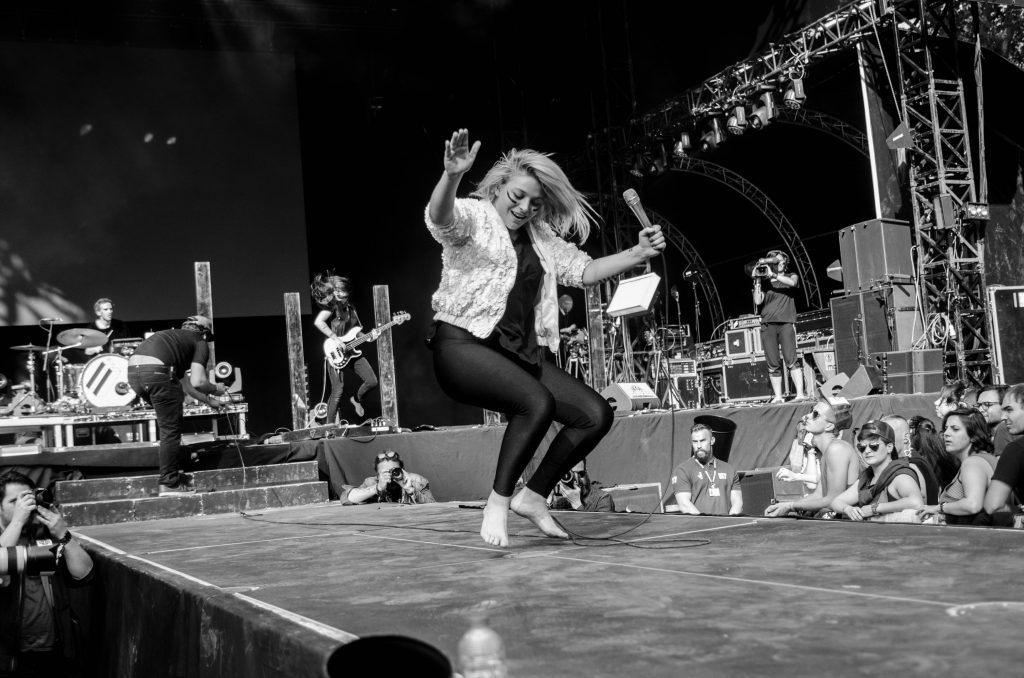
The best or most common advise I received about my performance anxiety was to simply do it; do it more and more, and eventually you’ll get used to it – it will become second nature. The problem was, while this is very true, and very useful – I spent years attending small acoustic gigs and open mic nights and even some much bigger opportunities that arose – and though I got used to performing, I still never felt very comfortable up there.
I agree that the key is perseverance, and I’ve exercised this in other areas – writing, practicing, learning, fitness, etc – but I don’t believe that you can train yourself to be an extrovert, when you simply are not. And I don’t believe that you should want to, either. We are who we are, that’s what makes us unique, and there being so may different kinds of people is what makes the world so beautiful. What you can do, however, is train yourself to do things that we’re taught only extroverts can do – things you want to do, things that you love, things that challenge bias and fear and paranoia – and therefore, you can reap the fruits of that particular field, while still holding on to exactly who you are and what you’re about. If you were to become an extrovert, your thought process would be entirely different, as would the songs you write. There’s a reason we all see things the way that we do.
The person who wrote last centuries best selling book was not the same person who built last centuries tallest sky scraper, though both would have needed to step outside of their comfort zones at some point in the process, whether it was to reach more people, to market their idea, to explain themselves, or to simply make sense of the dark areas that held no interest to them. We don’t get where we want to be in life by ourselves, or without outside influence. Anyone that says they did is lying. We need each other, we take inspiration from each other, we use each other to fill in the gaps, to provide the skills that we ourselves don’t possess. When it comes to performance, we must borrow those skills for ourselves – we must go this particular moment alone, but take inspiration from those we’ve seen do well, and use something to drive us that we wouldn’t normally think of as fuel.
I perform as regularly as I can. I make myself attend, and I make myself do it, and if the option arises I agree to go on first so that I’m doing, always doing, as opposed to thinking or worrying about doing. If this will be your first performance, do something that will make you feel more confident – whether you want to play the violin during your rock performance or prefer to wear a mask while playing the piano, do it. Some people may find it unusual, but if this can get you away from distractions, do it. However, do not put yourself in a box.
As Gary Vaynerchuk so frequently states – just do, move fast and break plates, because you’ll spin a lot more that don’t break than you will if you spend your life holding on to the same four (or something of this sentiment). I encourage other people to do the same, because what it really comes down to, is that making yourself perform, if you’re an introvert, is the very definition of stepping out of your comfort zone. Whether this is in music, in work, in travel, in life experiences – those who achieve great things, are those who are willing to take risks, to step or even dive outside of their comfort zones. Whether I feel that a performance has gone well or not, what I get from the experience is that everything else thereafter, at least for the rest of that week, seems a lot less scary.
A few years ago, perhaps only a year or so into my ‘musical life’, I entered myself into a songwriting competition that took place in Bristol (where I was living at the time.) This was, hands down, by an intensely long shot, the most terrifying thing I had ever willingly involved myself in. I did it for a number of reasons. First of all – I knew what I wanted; I wanted to get better at music, at playing, at singing, at performing, and there is only one way to get better at something (by doing it). Secondly, I was living with some friends who were also musicians, one of whom was also up for the competition – so I wasn’t alone in the experience. And thirdly, even after a year of performing live, I still had this overwhelming feeling of terror and doom in the hours and even days leading up to each and every gig, and I wanted that to go away. I needed it to go away. It was getting in the way of the life I wanted to live. I wanted to scare myself so badly, that everything else afterwards would seem like a walk in the park. And that’s exactly what it did for me. I flew through the rest of the month, and I booked a ton of gigs without a second thought.
The only advice anyone can give you regarding performance, if you’re not a natural, born to perform sort of person, is that you have to put the process into action. Try not to think of it as a performance, just think of how much you love music, how much you love creating, and do your thing. The best performances are often the most natural ones, as if you’ve caught the artist unaware, you’ve somehow managed to peek into their personal world and witness them in the height of artistic expression. Those are the ones that captivate. Those are the moments of realness that we find so interesting and entertaining.
It’s much easier said than done, I know, and for many introverts, or even just people who suffer from anxiety or nervousness; performance comes in many forms, each and every day of our lives. For some people, it’s driving – it terrifies them; what if there’s an accident? What if I faint at the wheel? What if the police pull me over and breathalise me and there’s still alcohol in my system from three days ago and I end up in prison? What if that friend I gave a lift to last week left some hard drugs under the seat and they find it?! These are just some of the obsessive, irrational and debilitating thoughts that flash through the mind of an excessive worrier, and for those people, there are many situations in life that are considered a public performance. The good news is that if you’re an artist or a musician or have some sort of creative juice flowing through you, you already have at your disposal one of the very best tools for overcoming, or at least washing over, the unpleasantness of fear.
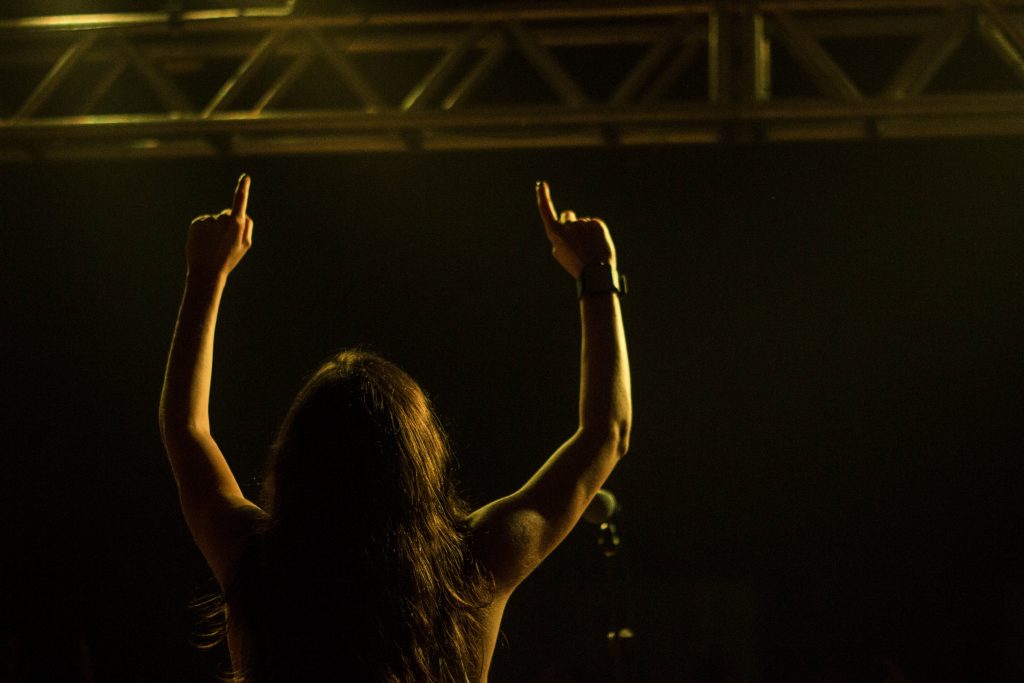
Creating music and art is something that makes us feel amazing. It keeps us busy, it’s like meditation – we focus on our craft, we spend the time thinking intently about what we’re doing, and at the end of it we have something beautiful, something home made, something brand new that the world has never quite seen before. We encapsulate, essentially, the very moment we are living in – and this is the key idea, to live in this single moment; not in the past or in the future – and we seal that moment in time, so we can look back at it whenever we want to, and we can share it with whomever we choose. If you’re already someone who does this in life, and yet outside of creating you still find every day tasks and opportunities difficult to commit to; I cannot recommend performance enough.
For the introvert, performance isn’t always about making it big or making a career out of something – this is, of course, a massive factor in successful musicianship, albeit much less of one these days than it used to be (there are some artists and bands who have made it to popular status online without ever having performed, but I digress.) For the introvert, performing is about personal development. It’s about recognising how irrational a certain fear is, and stepping out in front of it to say so.
For many of us, the fear remains in place throughout the performance – it stands or sits quietly as part of the audience, like a long standing enemy, observing, waiting for us to fuck up – we simply focus on the things that aren’t there to try to ruin us, the people who don’t want to see us fail, and we carry on regardless. It does get much easier once you’re up there doing what you do. If you’re prepared, well practiced, well rehearsed – you know what you’re doing, you know that you know what you’re doing, it’s just a matter of doing it – you’ll start to settle in to the whole thing after a couple of songs. With open mic sessions of course, that’s just about all you get, so there’s a chance you’ll only take away from it the bravery and energy it took to makes yourself do it, but even that has incredible benefits.

Think of it this way – if you’re terrified of performing, yet somehow you manage to summon up all of your inner strength, and ignore the niggling part of your brain that tells you not to do it, you’ll be exhausted afterwards; you’ll be so glad it’s over, that you won’t have any fear or overpowering adrenaline left to distract or prevent you from, for example, the important meeting you have tomorrow, or the interview, or the rush-hour drive through an unfamiliar city (whatever it may be that you fret about.) If you can face your biggest (and perhaps most irrational of all) fear, by getting up on stage and doing what you only otherwise do at home (I mean, of course, those songs you write and sing, those riffs you play) then you’ll know for certain how capable you are of doing the very things in life that other people seem to do so easily. You can seem that way too.
While we’re on this point, I really can’t stress enough – having lived in many different parts of the UK, attended many gigs, worked with and spoken to many musicians from around the world – most people are in the very same boat we’re in. Most people don’t feel that they were born to perform. Most people are aware of the possibility that they might make a mistake, or embarrass themselves, or never be allowed back to the venue (a common, worst case scenario we let play out in our minds.) But they simply go for it anyway. It’s unlikely you’ll embarrass yourself, but even if you do – nobody really gives a shit about that.
People are people; we try, we succeed, we fail, we fuck up, we repeat ourselves, we move on. Nobody’s going to be thinking about your performance in a negative way once the show is over. If they think about you again, it’s probably because they loved that song you sang, or that particular lyric you shared, and they felt connected to you somehow – which can never happen if you don’t get out there and play. And that’s what it’s all about. We can share our music online until the end of our days, but to perform our songs live, to a small, intimate crowd of people who are only there to either do the same or to hear new songs from new people (to connect, to experience, to understand and be understood) that’s something else entirely. It’s incomparable.
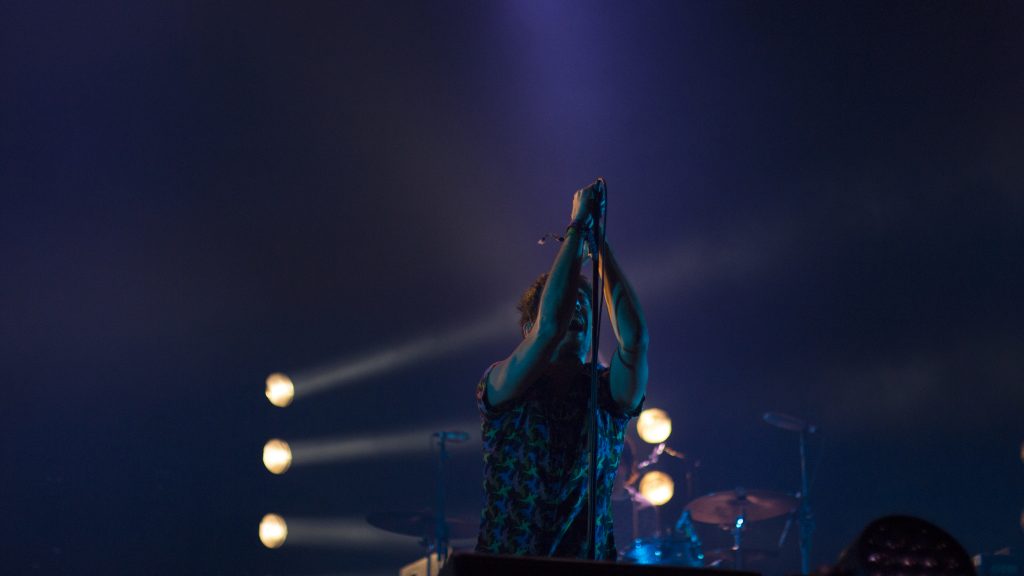
Even if it scares you, and even if you aren’t half as good as you thought you were, or as you were back at home, in the long run – you’ll be so glad that you did it. Not because it got you your big break (that would simply mean more gigs, bigger audiences, which you probably wouldn’t be too keen on) but because you stepped outside of your comfort zone. You did as the extroverts do, and you still came home in one piece – alive, able, experienced, and as creative and inspired as ever. It’s worth it just to be a part of something special.
There are amazing things happening in most cities and towns, there are DIY music scenes everywhere – get involved. It’s like they always say (they – the older, wiser generations, and internet memes) the only things you’ll truly regret in life, are the things you didn’t do. Ignore the fear, block it out, or use the fear, use the adrenaline, channel it into something positive – dance in front of the fear – whatever works for you, just make sure you DO. Act now, reflect later, because if you sit there reflecting now – before you’ve even gone up and performed – you won’t perform. You’re reflecting on every possible circumstance or event that could take place and ruin your life while your up on that stage. That’s not reflecting. That’s a waste of energy.
The world deserves your creative energy, and your creative energy deserves to be set free. Nobody does quite what you do, in quite the way that you do it. You have to feed your need to be free, and exercise the very fact that you are – and how lucky you are that this is so – by being free. I don’t promise it will be easy, far from it – that’s the whole point. We have to push ourselves, otherwise we all just float around in the safe zone until the end of our days. But I promise that you’ll get something out of performing that you’ll never get from worrying about performing. If nothing else, let your curiosity guide you – let your what if, be a what if it’s a wonderful, amazing, unforgettable, life changing experience? There’s only one way to find out.
